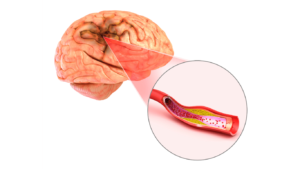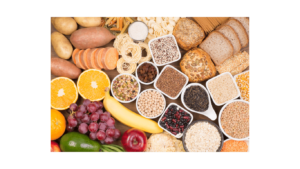Maintaining a healthy heart is crucial, and your diet plays a pivotal role in achieving optimal cardiovascular well-being. Cardiologists emphasize the profound impact of dietary choices on blood pressure, blood sugar, cholesterol levels, and overall body weight. In this comprehensive guide, we'll delve into a diverse range of heart-healthy foods, providing you with insights into their benefits and why they deserve a prominent place in your diet.
Nuts
Cardiologists unanimously advocate for incorporating nuts into your daily diet. Studies highlight that a handful of nuts each day can significantly lower the risk of heart disease. Nuts, encompassing various types, are rich in healthy fats, fiber, minerals, and vitamins. Almonds and walnuts, in particular, stand out for their favorable balance of fats. Opt for unsalted varieties to limit sodium intake, ensuring a heart-healthy snack that's both delicious and nutritious.
Seeds
Seeds, such as pumpkin seeds and flaxseed, emerge as potent plant-based sources of protein and omega-3 fatty acids – essential components for heart health. These heart-healthy unsaturated fats, coupled with fiber, vitamins, and minerals, make seeds a valuable addition to your diet. Consider incorporating them into your meals for a flavorful boost that promotes cardiovascular well-being.
Fruits and Vegetables
A diet rich in fruits and vegetables, excluding white potatoes, is linked to a reduced risk of heart disease. Emphasize whole fruits and vegetables over juicing to maximize fiber intake. Opt for deeply colored produce like purple cabbage, sweet potatoes, broccoli, pomegranate, mango, and peaches, as they tend to be more nutrient-dense. These choices not only contribute to heart health but also add vibrancy to your plate.
Dark Leafy Greens
Dark leafy greens, including kale, spinach, broccoli, bok choy, collard greens, arugula, and mustard greens, are nutritional powerhouses. Rich in dietary nitrates, they convert into nitric oxide in the body, promoting blood vessel relaxation and lowering blood pressure. Additionally, their magnesium content contributes to reducing inflammation, a key factor in preventing heart disease.
Beets
Research associates deep-red beets with lowering inflammation and reducing blood pressure. Nitrates and betalains, present in beets, combat harmful oxidative stress and play a role in cardiovascular disease treatment. Consider incorporating beets into your diet to harness these potent health benefits.
Beans
Beans and legumes, high in minerals and fiber, offer robust protection against heart disease. These plant-based protein sources, without the saturated fat found in some animal proteins, improve cholesterol levels and reduce markers of chronic inflammation. The phytochemicals in beans are notably beneficial, contributing to better heart health.

Yogurt
Yogurt, a probiotic-rich delight, has been linked to higher levels of HDL (good cholesterol) and lower levels of triglycerides, in a study involving over 190,000 U.S. veterans, yogurt outshone other dairy options in providing heart health benefits. Incorporate yogurt into your daily routine to support your cardiovascular system.
Whole Grains
Shifting to whole grains like whole-wheat flour, oatmeal, and brown rice yields positive effects on cardiovascular risk factors. The scientific statement from the American Heart Association underscores the benefits of these grains in improving heart health. Whole grains, such as oats, contain soluble fiber that actively reduces cholesterol, contributing to a healthier heart.
Omega-3
Cold-water fatty fish, including salmon, mackerel, tuna, herring, and sardines, boast high amounts of omega-3 fatty acids. Research indicates that a daily intake of omega-3s can help lower blood pressure. The American Heart Association recommends incorporating fish into your diet, emphasizing baking or steaming over deep-frying for optimal heart benefits.
Avocado
Avocado enthusiasts, rejoice! Consuming two or more servings of avocado per week is associated with a lower risk of cardiovascular disease. Avocados, packed with heart-healthy monounsaturated fats, offer a delightful and nutritious addition to your diet. Moderation is key, as even half an avocado constitutes a serving.
Extra Virgin Olive Oil
A cornerstone of the Mediterranean diet, extra virgin olive oil stands out as a nutrient-dense and disease-fighting food. Boasting anti-inflammatory and antioxidant properties, it contributes to heart health by lowering LDL cholesterol, increasing HDL, and reducing blood pressure. Incorporate this flavorful oil into your cooking for a heart-healthy culinary experience.
Berries
Berries, nature's colorful gems, are low in calories and high in fiber, vitamins, and antioxidants. Numerous studies link berries, such as strawberries and blueberries, to improved heart health. Including these vibrant fruits in your diet can combat cell damage and contribute to a lower risk of cardiovascular disease.
Tomatoes

A tomato-rich diet offers a diverse array of health benefits, including a reduced risk of cardiovascular disease. Antioxidants like lycopene, beta-carotene, and vitamin C in tomatoes play a crucial role in preventing atherosclerosis. Combining tomato sauce with olive oil enhances the absorption of lycopene, maximizing its heart-protective effects.
Cinnamon
Incorporate cinnamon into your spice cabinet for a flavorful and heart-friendly addition. A randomized controlled trial highlights significant reductions in systolic blood pressure with the regular consumption of cinnamon. Elevate your culinary creations with this blood pressure-friendly spice to support your cardiovascular well-being.
Dark Chocolate
Indulge in the richness of dark chocolate, a delightful dessert that also promotes heart health. Packed with flavanols, dark chocolate has been associated with a lower risk of heart disease. Enjoying a moderate amount, around 1 ounce per day, can contribute to reducing blood pressure and the overall risk of stroke and heart disease.
Coffee
Coffee enthusiasts have reason to celebrate, as research suggests that drinking two to three cups of coffee daily is associated with a lower risk of heart disease and heart rhythm problems. This magical beverage, when consumed within these limits, exhibits potential benefits for heart health, including a reduced risk of developing cardiovascular issues or premature death.






